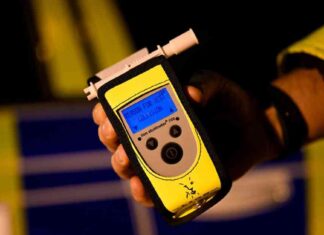In 1991, a horrific crime shook the community of Federal Way High School near Seattle, Washington. Sixteen-year-old Sarah Yarborough, an honors student and drill team member, was found murdered on campus. The case had a profound impact on her family, friends, and the investigators who worked tirelessly to solve it.
The story begins with 13-year-old Drew Miller, who discovered Sarah’s body along with his friend one cold morning while out skateboarding. The shock and fear of that day never left Miller, as he vividly recalls the details of the gruesome scene. Sarah’s body was found partially dressed, with signs of a struggle indicating a sexually motivated murder.
The investigators faced challenges in piecing together the events leading to Sarah’s murder, as they speculated that she may have been lured to the location where her body was found by someone she thought needed assistance. The DNA evidence found on her clothing provided a crucial lead, but it would take years before technology caught up to help solve the case.
In 2011, forensic genetic genealogy emerged as a new tool to identify suspects by comparing unknown DNA profiles to public databases. Colleen Fitzpatrick, a pioneer in this field, worked on Sarah’s case and eventually traced the killer’s family tree back to a man named Robert Fuller. This led to the discovery of brothers Edward and Patrick Nicholas as possible suspects.
After surveillance and obtaining a surreptitious DNA sample from Patrick Nicholas, investigators confirmed a match to the DNA found at the crime scene. Nicholas, a convicted sex offender with a history of violence against women, was arrested and brought to trial over 30 years after Sarah’s murder.
The trial, marked by emotional testimonies from Sarah’s loved ones and a chilling display of evidence found at Nicholas’ residence, resulted in his conviction for first-degree and second-degree murder with a sexual motivation. Despite the relief of justice served, Sarah’s family and friends continue to grapple with the pain of her loss and the system’s failure to prevent Nicholas from committing further crimes.
The legacy of Sarah Yarborough lives on through the connections forged during the trial and the hope that her case will lead to legislative changes allowing for familial DNA searches to prevent similar tragedies in the future. The resolution of the case brought closure to those involved and a sense of healing to those impacted by the loss of a bright and beloved young woman.























